The streets are cold and unforgiving. With all due respect to Jay-Z, they are also very tight-lipped. Despite all the songs and the movies supposedly based on the kingpins and the dope boys, the truth is far harder to discern. Accurately documenting the history of organized crime is a tedious and thankless task. Reliable information is scarce. Most lazy journalists (and law enforcement) pass off myth and folklore as fact, and supposedly reliable media sources allow themselves to become breeding grounds for misinformation.
Freelance journalist and film producer Ron Chepesiuk has made a conscious effort to go against this trend. His body of work includes such highly acclaimed titles as Gangsters of Harlem: The Gritty Underworld of New York City’s Most Famous Neighborhood (Barricade Books, 2007), Black Gangsters of Chicago (Barricade Books, 2007), Drug Lords: The Rise and Fall of the Cali Cartel (paperback, Milo) and the upcoming Sergeant Smack: The Legendary Life and Times of Ike Atkinson, Kingpin, and his Band of Brothers. He also serves as a consultant on the History Channel series “Gangland” and has been interviewed on the B.E.T series “American Gangster”.
Planet Ill had the opportunity to talk with Mr. Chepesiuk about the myths regarding concerning the history of organized crime. Here is the truth.
Planet Ill: What are of the biggest and most dangerous misconceptions about organized crime?
Ron Chepesiuk: The biggest misconception about organized crime is the amounts of money gangsters are supposed to make. Read Hip-Hop mags like F.E.D.S. and Don Diva and the profiles of gangsters they publish and you get wildly inflated figures as how much money gangstas make. The truth is nobody really knows because we dealing with the underworld. Get it? But there is an invested interest on both sides of the law to inflate the figures. Law enforcement does it to justify their budgets and to get promotions. Gangsters exaggerate because of their egos.
Frank Lucas, the self-styled American gangster, bragged that he was making a million dollars a day in Harlem in the early 1970s peddling smack. First of all, can you imagine trying to haul away in a car $1 million a day in street money? Also, Lucas was on welfare when they published that New Yorker magazine article that caught the attention of Hollywood. So what happened to that million bucks a day? I know for a fact from sources that Lucas was in constant trouble with La Cosa Nostra because he owed them money. Do you know how much a kilo of smack was selling for at the time? About $25,000 a kilo. Is that the kind of price that leads to a million dollars a day in drug peddling profits?
Planet Ill: Many people have had the misconception that African-American organized crime didn’t exist. Has this misconception hindered law enforcement as far as dismantling these criminal organizations?
Ron Chepesiuk: Well racism has affected all aspects of society. Four decades ago, many criminologists did not believe African-Americans were smart enough to organize crime. And it was not just the academics. Blacks were able to control lottery or policy racket in their communities because La Cosa Nostra thought it was just a penny ante criminal enterprise. The Mob was shocked to learn about the money being made and subsequently moved in to take it over.
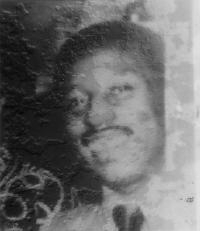 Frank Matthews was able to operate under the radar of law enforcement for several years because at first they didn’t investigate him seriously. But by the late 1970s, with names like Matthews, Robert Stepheney, Zack Robinson, Nicky Barnes, and Goldfinger Terrell operating as big-time drug lords, law enforcement knew that African-American organized crime existed.
Frank Matthews was able to operate under the radar of law enforcement for several years because at first they didn’t investigate him seriously. But by the late 1970s, with names like Matthews, Robert Stepheney, Zack Robinson, Nicky Barnes, and Goldfinger Terrell operating as big-time drug lords, law enforcement knew that African-American organized crime existed.
Planet Ill: Gangster films based on real life gangsters and “true stories” always contain factual errors, and omissions. The rationale behind this is that a movies job is to entertain, not to inform. Do you agree with that?
Ron Chepesiuk: That’s essentially a cop-out rationale for Hollywood to make a lot of money without having to worry about its credibility. The key word is “based.” Given that qualifier, Hollywood can take all kind of liberties with the story. It has led to a lot of myths and distortions about gangland history. The recent movie, American Gangster, is a prime example. Unfortunately, moviegoers don’t take the time to check out the movie’s accuracy and the myths prevail.
Planet Ill: What would you say is the most realistic movie about organized crime?
Ron Chepesiuk: I like Goodfellas a lot. It’s the story of Henry Hill, mob snitch, and it’s based on his autobiography. I thought it gave a good inside look at the Mob. I also liked A Bronx Tale, which is not actually a mob movie, but it shows the impact the Mob can have on a community and its families. Put a mob movie on the DVD and I’ll be there with the popcorn and beer. Love them! I’m also a big fan of so called “blaxploitation” movies of the 1970s…Black Caesar, Shaft, Superfly… although they are more fiction than fact-based.
Planet Ill: Why is American culture so fascinated by gangsters and criminal subcultures?
Ron Chepesiuk: I’m not really a shrink, but I think we all got a little larceny in our souls and we all live pretty dull lives. We’re fascinated with people like the gangsta who live on the edge. Besides, what can get the blood moving like a good gangsta story?
Planet Ill: Some of your work focuses on African-American organized crime. What are the biggest and most dangerous misconceptions regarding that phenomenon?
Ron Chepesiuk: That African-American organized crime’s perpetrators are just hoodlums who have nothing going for them outside their ruthlessness and violent natures. Actually, to be a successful drug dealer at the higher level you need to exhibit entrepreneurial skills and have brains. Some of the big names in Black organized crime have been really complex multidimensional characters.
 Look at Bumpy Johnson who was sophisticated, cerebral and self-educated. Nicky Barnes was well read and had a brilliant business mind. And look at how Frank Matthews organized his drug trafficking network. I just finished writing a book on the life story of Ike Atkinson, from whom Frank Lucas stole much of his story, and the word law enforcement officials use to describe Ike is intelligent. One former prosecutor said he could have been a CEO of a major corporation
Look at Bumpy Johnson who was sophisticated, cerebral and self-educated. Nicky Barnes was well read and had a brilliant business mind. And look at how Frank Matthews organized his drug trafficking network. I just finished writing a book on the life story of Ike Atkinson, from whom Frank Lucas stole much of his story, and the word law enforcement officials use to describe Ike is intelligent. One former prosecutor said he could have been a CEO of a major corporation
Planet Ill: The information regarding many of these figures seems sketchy and unreliable at best. Why is that?
Ron Chepesiuk: Well, you are dealing with criminal history, and criminals don’t generate many records. Ever hear of a gang banger keeping a diary or writing instructions to his lieutenants? That’s both the challenge and fun in writing about gangstas, Black or otherwise. If you are a writer and you are lucky, there will be a lot of court records to mine and lot of key people will still be alive, although it’s often tough to get them to talk.
Planet Ill: Has rap music gone too far in terms of glorifying and romanticizing this lifestyle?
Ron Chepesiuk: Yes, I think so, and the music helps to perpetuate the myths about Black organized crime. I don’t think there is anything glorious in selling poison to your own people, no matter how hard gang bangers try to justify it. Or killing people gratuitously. But it’s not an ethnic thing. Look at how Al Capone and John Gotti have been glorified.
Planet Ill: What do you think could be done to correct that?
Ron Chepesiuk: I don’t think there is anything that can be done about it so long as there is a market for the product. And censorship is never a good solution. Hopefully young people are smart enough to figure that being a hood doesn’t offer a lifestyle worth pursuing. Outside of Frank Matthews, I would be at loss to come up with another name of a gangsta of any color who got away with it. And we are not sure Frank Matthews did get away with it.
Planet Ill: Why is the story of Frank Matthews not better known?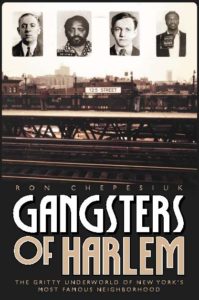
Ron Chepesiuk: That’s a good question. The American Gangster series on BET did not do an episode on Matthews during its three seasons on the air. Neither have the Mobsters or the Gangland series. Yet, Matthews is to black organized crime what Lucky Luciano was to the Italian Mob and. Pablo Escobar was to the Colombian cocaine trade or Khun Sa was to the Asian smack trade.
The godfather Bumpy Johnson is probably most fabled Black gangster of all time, but he was small time compared to Frank Matthews. Frank was an international drug dealer with a source in Venezuela and an organization that operated in 21 states. He’s about a charismatic a character as we have in organized crime. And he disappeared 35 years ago with a reported $15 million, never to be seen again. I know because in researching his story, I’ve interviewed most of law enforcement officials that hunted him. The fact that Frank’s story is not well known is a writer’s opportunity. I’m working on making his story better known.
Planet Ill: Did Matthews really escape with 15-20 million dollars? If so, how is that possible?
Ron Chepesiuk: Yes, the figure comes from DEA intelligence and the DEA agents I interviewed in researching Frank’s story. I said Frank was smart. He knew that authorities were closing in on him, so several months before he disappeared he began salting money away (about $ 1 million a month). He primarily used the Las Vegas casinos to do it
Planet Ill: How did Frank Matthews manage to escape?
Ron Chepesiuk: Frank Matthews was arrested in Las Vegas on his way to LA to watch the Miami Dolphins-Washington Redskins Superb Bowl game and returned to New York City for trial. But he was let out on relatively low bail, which really ticked off law enforcement officials who put him in jail and knew he was a flight risk. Frank was to appear in court, but did not show up. He disappeared along with his mistress. I have profile of Matthews in my book, Gangsters of Harlem.
Planet Ill: What are some of your upcoming projects? What should we be on the lookout for?
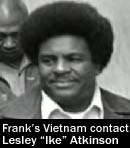 Ron Chepesiuk: I have been quite busy. My book, Gangsters of Miami, will be published out in late October or early November. I have also have an e-book on the Trafficantes, La Cosa Nostra godfathers from Tampa, coming out later this year. I plan on publishing Ike Atkinson’s story next May or June. I am also working on getting some of books made into films and documentaries. Stay tuned.
Ron Chepesiuk: I have been quite busy. My book, Gangsters of Miami, will be published out in late October or early November. I have also have an e-book on the Trafficantes, La Cosa Nostra godfathers from Tampa, coming out later this year. I plan on publishing Ike Atkinson’s story next May or June. I am also working on getting some of books made into films and documentaries. Stay tuned.
Planet Ill: Is there anything you’d like to leave to readers of Planet Ill with?
Ron Chepesiuk: Yes, keep the faith, be righteous and support this fine web site. I also hope your readers continue to buy and enjoy my books.
Follow Us on Twitter @ http://twitter.com/planetill
Follow Malice Intended on Twitter @ http://twitter.com/renaissance1977
Join Us on the Planet Ill Facebook Group for more discussion

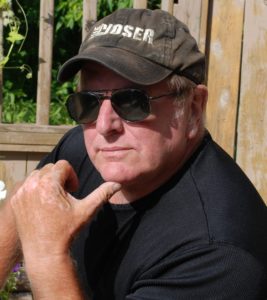
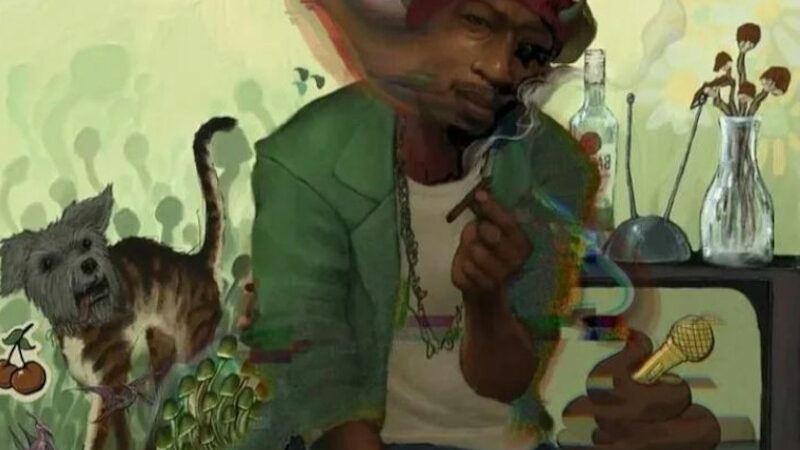
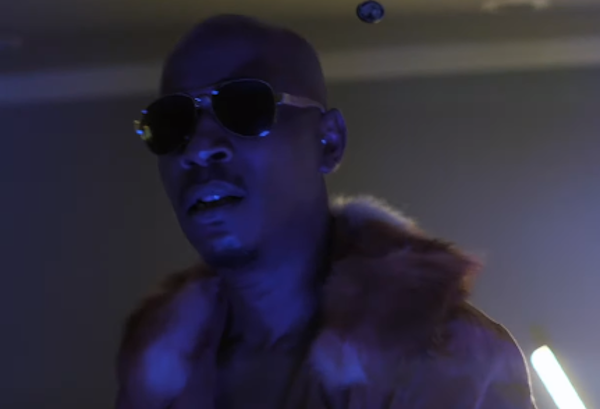
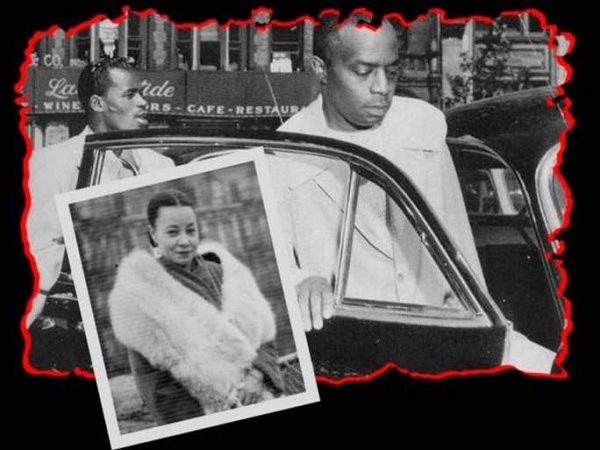
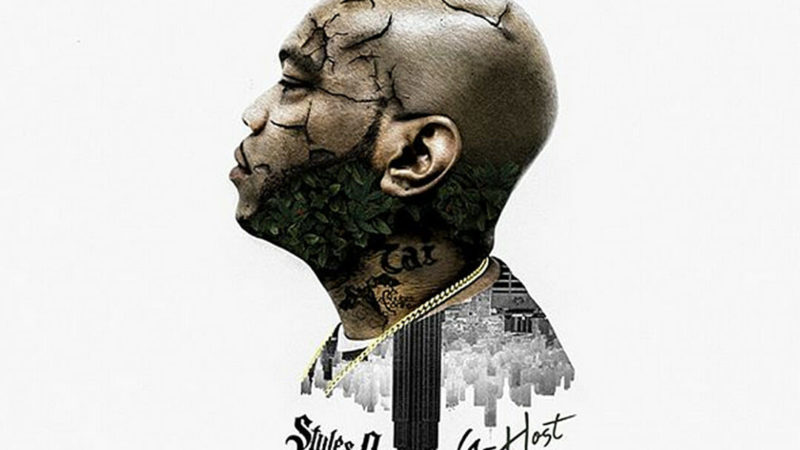
Ron Chepesiuk is the best ‘gangsta’ journalist in north america..he”s hit the nail on the head on all his chronicles… Bravo!!